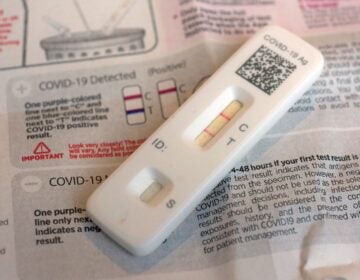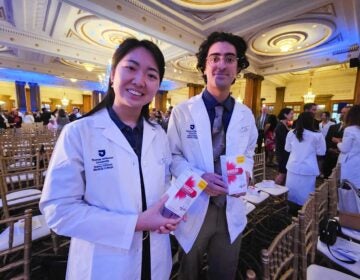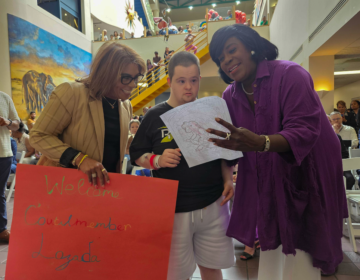Slow medicine
ListenThere’s a small trend afoot — a tendency toward slower, mindful, more meaningful living. Perhaps you’ve heard of slow travel, slow design, slow food. Well, how about slow medicine?
In her book God’s Hotel: A Doctor, a Hospital, and a Pilgrimage to the Heart of Medicine, physician and historian Victoria Sweet reflects on two decades spent at the last almshouse in the country. There, she practiced medicine within a healing framework that embraced the notion of “the body as a garden to be tended…not a machine to be fixed.” Through the richness of human relationship, she meticulously cared for the fallen, their bodies and souls.
Dan Gottlieb discusses slow medicine—what it is and when it’s most advantageous–with Drs. Victoria Sweet and Dennis McCullough.
Victoria Sweet is an Associate Clinical Professor of Medicine at the University of California, San Francisco, and a prize-winning historian. She’ll speak at Villanova University as part of the Vivian J. Lamb Lecture Series on April 18. Her book is now out in paperback.
She tells Voices in the Family: “The bottom line is a well trained physician who has enough time to see his patient is more efficient that anyone else. Every time I give a talk, one person says, ‘My doctor doesn’t look at me anymore. He looks at the computer.’ Studies show doctors have 3 minutes to be with a patient after taking down their information. You can barely unbutton your clothes in three minutes.”
Dennis McCullough has been a family physician and geriatrician for 30 years. He serves as a faculty member in the Department of Community and Family Medicine at Dartmouth Medical School and is the author of My Mother, Your Mother. He’ll deliver the keynote address at West Chester University’s Integrative Health Conference on April 20.
McCullough has a slightly different take on slow medicine which he applies within the field of geriatrics: “The practice of Slow Medicine has taught me that it is wise to slow down and moderate the urgent pressures of decision-making that are often pushed prematurely on elders by society, the medical profession, worried friends and family. Well-intentioned, we want to make good and humane choices for ourselves and for those we love.”
WHYY is your source for fact-based, in-depth journalism and information. As a nonprofit organization, we rely on financial support from readers like you. Please give today.




